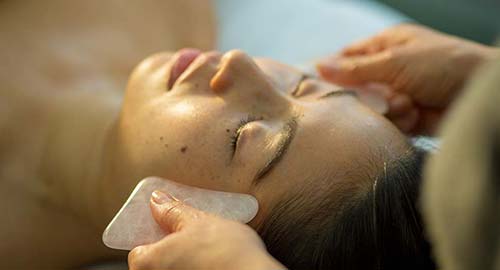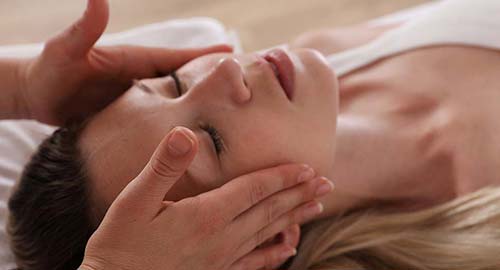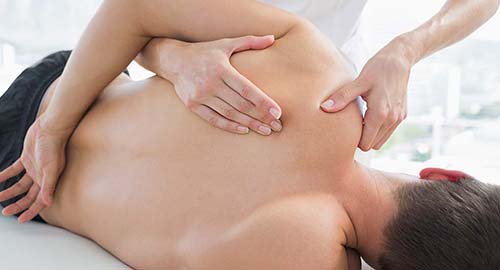As we approach the end of Menopause Awareness Month 2021, I thought it was time to investigate the male menopause. Is it fact or fiction? Do men go through the menopause like women? What symptoms might men experience?
What is the Male Menopause?
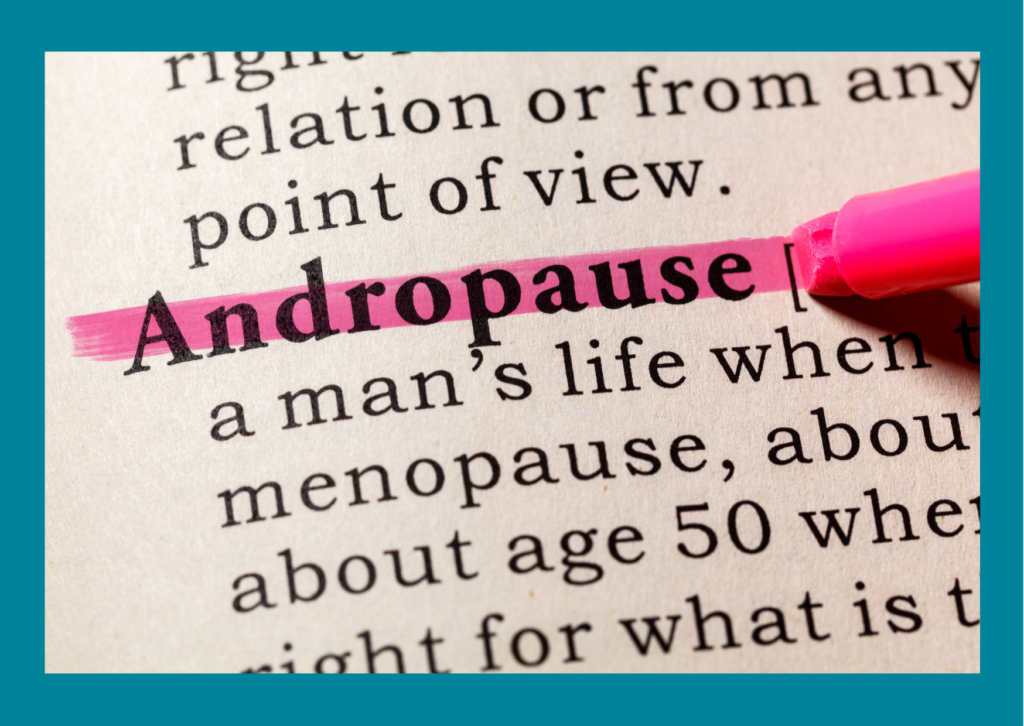
The Male Menopause is a term favoured by the media. It’s most commonly known as Andropause.
Andropause, coming from the Greek:
Andras – meaning human male
Pause – meaning cessation
So, is the Male Menopause actually Andropause?
As mentioned above, andropause is the most commonly used name for the changes that occur to a man as his hormone levels decrease with age. Other names given to a man’s slowly reducing testosterone levels include:
- Male menopause
- Male climeratic
- Testosterone deficiency
- Androgen deficiency
- Androgen decline in ageing male (ADAM)
- Ageing male syndrome
- Late onset hypogonadism (LOH)
It should be noted that true andropause is only present in men who have lost testicular function.
For this blog I will use the term male menopause.
Is There Such a Thing as the Male Menopause?
This is a question that is frequently asked and…
The answer is yes! And….
The answer is no!
Male menopause implies that a man’s dropping testosterone levels will give him similar symptoms to a female going through the menopause. This leads people to think men have a menopause.
However, whilst a small proportion of men may experience some of the symptoms discussed further in this article when they reach late 40s or early 50s, the changes to their bodies are at a much slower rate so they do not experience a menopause like women.According to Medical News Today, only 2.1% of men will be affected by male-menopausal symptoms.
Why are the Female and Male Menopause Different?
As we age, there are changes to the hormone levels our bodies produce.
In women, oestrogen and progesterone levels begin to reduce significantly during perimenopause, ovulation often becomes irregular before ceasing altogether at menopause, and, very quickly women experience issues such as hot flushes and brain-fog.
(You can read more about the perimenopause and menopause /its-world-perimenopause-day-are-you-experiencing-perimenopause/ and /world-menopause-day-menopause-and-you/ )
In men, testosterone levels drop gently – around 1 or 2% annually from around your mid 30s / early 40s. It is not unusual for older men to have testosterone levels within the ‘normal’ range. This slow reduction in testosterone rarely causes issues.
What Happens as a Man’s Testosterone Levels Drop?
As we’ve seen, the male menopause is the accepted term for the drop in testosterone levels in men of a certain age.
Testosterone is probably best known for fuelling a man’s sex-drive. It also:
- Supports changes to a man’s body at puberty – growth in muscle mass, deepening of voice, growing of body hair.
- Helps with maintaining muscle density
- Regulates fight or flight responses
Reducing testosterone levels might cause physical, sexual and psychological problems. As testosterone levels continue to reduce at between 1-2% annually, these problems may worsen with a man’s age.
Symptoms of the Male Menopause
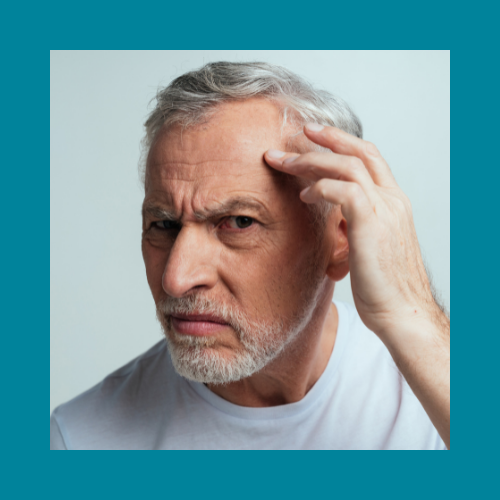
Most men will not experience symptoms as a result of lowering hormone levels, however, some commonly reported symptoms include:
- Reduced energy levels
- Feelings of depression
- Lack of motivation
- Brain fog and difficulty concentrating
- Mood swings
- Insomnia
- Increase in body fat
- Reduced muscle mass
- Thinning and drying skin
- Decreased bone density leading to osteoporosis
- Gynecomastia – the development of breasts or ‘moobs’
- Tender breasts
- Hot flushes
- Excessive seating
- Decreased testicle size
- Reduction of body hair
- Reduced sexual desire and activity
- Erection dysfunction and decrease in spontaneous erections
- Infertility
I Have ALL Those Symptoms – am I going through Male Menopause?
Not necessarily – feeling discombobulated can be associated with a number of things:
- Mid-life Crisis
- This can happen when men suddenly realise half their life is spent. They can get anxious about where they are and what they have achieved when compared with the hopes and aspirations of youth.
- Life Challenges
- Ageing parents, fledgeling children, relationship issues and worries about work could also cause symptoms that may be confused with the male menopause.
- Lifestyle
- Lack of sleep, poor nutrition, alcohol consumption, smoking and being sedentary can also cause symptoms similar to those of the male menopause.
- Late onset Hypogonadism (see below).
- Male menopause is often confused with hypogonadism as both conditions present with lowered testosterone levels and very similar symptoms.
What is Hypogonadism?
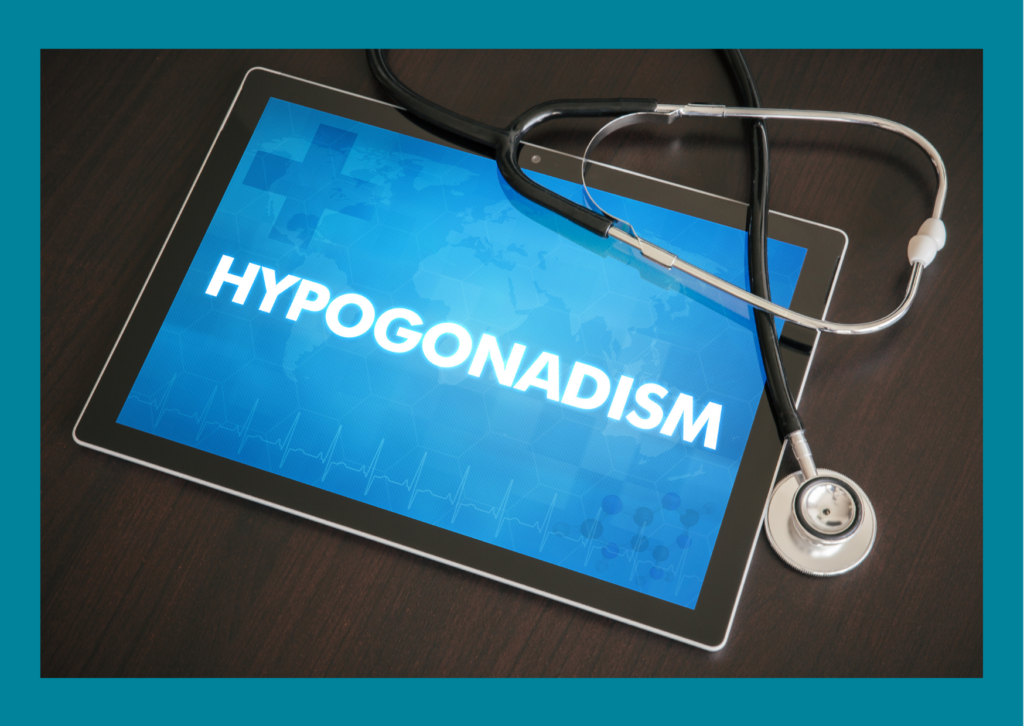
This condition is where your sex glands (gonads) produce little or no hormones. The major sex glands in a man are his testicles.
Hypogonadism can be present from birth – in this case it can cause symptoms such as small testicles and delayed puberty.
Hypogonadism can also occur later in life when it is known as Late Onset Hypogonadism (LOH). LOH is more prevalent in overweight men or those with type 2 diabetes. A simple blood test can diagnose LOH.
I’m Male-Menopausal, What can I do?
If you are experiencing severe symptoms or have any physical or psychological concerns then please contact a medical practitioner who will be able to help you.
Most of the male menopause symptoms listed above can be eased by making healthier lifestyle choices such as:
- Healthier eating
- Reducing alcohol intake
- Stopping smoking
- Exercising more
- Ensuring you have enough sleep
- Looking at ways to reduce stress such as meditation or yoga
- Taking time for you
What Next?
Remember, ageing is a natural process. It’s a privilege to grow older. If you are struggling with symptoms of male menopause then there is help out there for you. Your GP or medical professional is a good place to start. Sharing feelings with friends and loved ones can also help, as can ensuring you are looking after yourself – mind, body, and soul – optimally.

